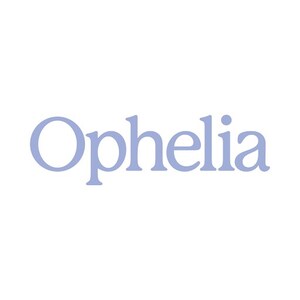- Amid rapid and widespread adoption of telehealth-based opioid treatment (TBOT), there is an urgent need for rigorous studies exploring the feasibility of urine drug testing
- In JAMA-published research, findings show that urine drug screens are not only feasible, but patients are overwhelmingly compliant with the practice
- While patients are compliant, urine drug screens are known to be an unnecessary and potentially punitive part of treatment for opioid use disorder
NEW YORK, July 31, 2023 /PRNewswire/ -- Opioid addiction care provider Ophelia today shared the results of a pioneering new study published in JAMA, finding that most telehealth patients completed a Urine Drug Screen (UDS) in the first 30 days of care and an overwhelming majority completed one within the first 90 days of care, suggesting that drug testing is feasible to conduct over an exclusively virtual treatment platform.
Among the 3,395 patients involved in the study, more than 83% completed a UDS within 30 days. After 90 days, that number increased to 97.6% of patients, and after 180 days, 99.7% of patients had completed multiple UDSs. Patients self-administered a UDS off-screen during telehealth visits and clinicians visually inspected results and discussed them with the patient in real-time over video. Validity of urine specimens was assessed by confirming that temperature, creatinine, nitrite, pH, oxidants, glutaraldehyde, and specific gravity were all within normal ranges.
Routine urine drug screening to test for illicit substance use and adherence to buprenorphine is commonplace in addiction treatment settings, primarily due to payer reimbursement policies and DEA requirements to monitor for diversion activity. Although there is a general premise that UDS is an important and useful part of office-based opioid treatment (OBOT) delivery, there is no substantial evidence that more frequent UDS improves patient outcomes.
In fact, patients often report they find routine drug testing demeaning and an invasion of privacy, and tampering with drug tests can happen regardless of how the test is administered. The absence of set protocols and solely relying on individualized clinical decisions can also increase the risk of disparate testing based on factors like race and socioeconomic status, highlighting the need for more formal guidance.
"At Ophelia, we use drug testing to advance our patients' goals, not to drive revenue from payers. We've never disenrolled someone from our treatment program due to a positive drug test. Our clinical protocols encourage the use of UDS to help assess progress and guide the care team in treatment plan adjustments, foster open communication between patient and clinician, and monitor for buprenorphine diversion," said Ophelia CEO and Founder, Zack Gray. "Our findings clearly show that remotely administered UDS is feasible and associated with low rates of unexpected results. This is consistent with the premise that long-standing and stringent requirements such as requiring in-person visits and frequent drug testing in order to receive buprenorphine can be relaxed without jeopardizing the quality or safety of care for most patients."
There has been a seminal shift in the National Drug Control Strategy and White House approaches recently for responding to the opioid crisis, notably expanding harm reduction services and removing the DEA X-waiver requirement for buprenorphine prescribers. In the context of ongoing debates over responding to the opioid crisis and allowances for telehealth services, multiple studies have found that TBOT may be associated with improved patient outcomes such as increased patient retention and decreased medically-treated overdose relative to in-person OBOT delivery.
Ophelia plans to conduct and publish additional research studies around the efficacy and safety of the TBOT model for OUD treatment.
About Ophelia
Ophelia is a digital provider of medication-assisted treatment (MAT) for opioid use disorder (OUD), committed to making evidence-based treatment universally accessible. Its mission is to remove barriers for the 80% of Americans with OUD who are unable to access care. At its core is the Ophelia Care Model, a team-based clinical model and software platform developed by leading experts in addiction medicine and psychiatry. Ophelia is licensed to provide care in 49 states and D.C. and is contracted with Medicaid, Medicare, and Commercial insurers covering 85 million American lives.
Media Contact:
[email protected]
SOURCE Ophelia

WANT YOUR COMPANY'S NEWS FEATURED ON PRNEWSWIRE.COM?
Newsrooms &
Influencers
Digital Media
Outlets
Journalists
Opted In





Share this article